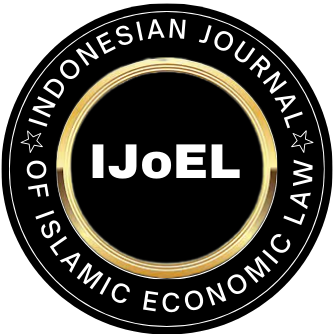Focus and Scope
FOCUS
The Indonesia Indonesian Journal of Islamic Economic Law aims to explore the interactions between Islamic economic law, contemporary economic analysis, and various aspects of Islamic law, with a commitment to addressing socioeconomic challenges. Our primary objective is to present practical experiences and best practices for applying Islamic economic doctrines within a multidisciplinary framework.
SCOPE
- Best Practices in Indonesian Islamic Economic Law:
- This study explores best practices within the wider context of Islamic economics, finance, microfinance, banking, insurance, halal industries, and Islamic business and economics.
- By presenting real-world evidence based on performance, it aims to improve the quality of contributions towards social justice and domestic and global welfare.
- Comprehensive research on the effectiveness of Islamic economic principles in addressing poverty, economic inequality, sustainable development, demographic challenges, and economic imbalances in Indonesia.
- Financial Services:
- Banking, Capital Markets, Derivatives, and Carbon Markets.
- Insurance, Guarantees, and Pension Funds.
- Financing Institutions, Venture Capital, Microfinance, and Other Financial Services Institutions.
- Legal Aspects of Technological Innovations in the Financial Sector, Digital Financial Assets, and Crypto Assets.
- Behavioral Aspects of Financial Service Providers, Consumer Education, and Protection.
- Audit of Financial Services and Financial Risk Management.
- Law, Sharia Studies, and Islamic Jurisprudence:
- Research covering various aspects of Islamic law, including contract law, jurisdiction, and jurisprudence.
- Exploration of the interpretation and application of Islamic law in economic and business contexts.
- Emphasis on the role of Sharia in addressing economic and social issues, including arbitration and product innovation.
- Islamic Business and Economics:
- Encompassing research on theory, practice, and society in the context of Islamic business and economics.
- Highlighting the intersection of Islamic economic principles with broader economic and legal frameworks.
- Philanthropy and Economics:
- Studies examining the role of philanthropy, waqf, microfinancing, zakat, and shadaqah in the development of Islamic economics and finance.
- Exploration of the impact of charitable giving on social welfare and economic development.









